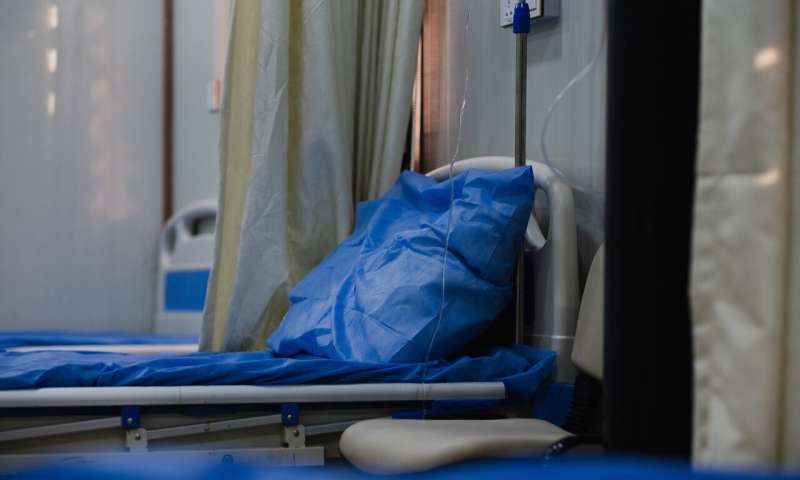
When patients undergo any type of surgery after having had COVID, their odds of significant postoperative problems diminish with elapsed time from COVID diagnosis.
Researchers at Vanderbilt University Medical Center now report that this trend of decreasing risk persists longer than previously known, for as long as 13 months after surgery. Their report appeared Dec. 14 in JAMA Network Open.
The researchers used electronic health record data from 3,997 adult surgical patients with a history of SARS-CoV-2 infection who underwent surgery at VUMC from March 2020 to December 2021. Time from COVID diagnosis to surgery was a median of 98 days.
The team analyzed composite odds of various cardiovascular problems within 30 days following surgery: deep venous thrombosis, pulmonary embolism, cerebrovascular accident, myocardial injury, acute kidney injury, and death.
The incidence of this 30-day composite outcome dropped steeply at first, from approximately 18% to 10% over the first 100 days after COVID diagnosis. It then proceeded to dwindle steadily for the next 10 months, reaching approximately 8% after 400 days from COVID diagnosis. The rate of decreasing risk was unaffected by patients’ COVID-19 vaccination status.
“Compared to previous population studies of this issue, ours is distinguished for tracking surgical outcomes more broadly and using a longer time horizon from COVID diagnosis,” said Robert Freundlich, MD, MSCI, associate professor of Anesthesiology and Biomedical Informatics, who led the study with critical care medicine fellow John Bryant, MD.
“As we were midway in our study, based on postoperative pulmonary outcomes one medical society issued a recommendation to delay surgery after COVID-19 by up to 12 weeks in more severe cases of COVID,” Freundlich said. “Meanwhile, with respect to this range of cardiovascular problems, in our data we were surprised to find a trend of subsiding risk still discernable more than a year after COVID diagnosis.
“In a given patient’s case, many considerations can influence when surgery should best occur, and our results provide further indication that doctors and patients would do well to include proximity to COVID in their thinking.”
Others on the study include Christina Boncyk, MD, MPH, Kimberly Rengel, MD, Vivian Doan, MD, Connor Snarskis, MD, Matthew McEvoy, MD, Karen McCarthy, EdD, Gen Li, MS, and Warren Sandberg, MD, Ph.D.
More information:
Association of Time to Surgery After COVID-19 Infection With Risk of Postoperative Cardiovascular Morbidity, JAMA Network Open (2022). DOI: 10.1001/jamanetworkopen.2022.46922
Journal information:
JAMA Network Open
Source: Read Full Article